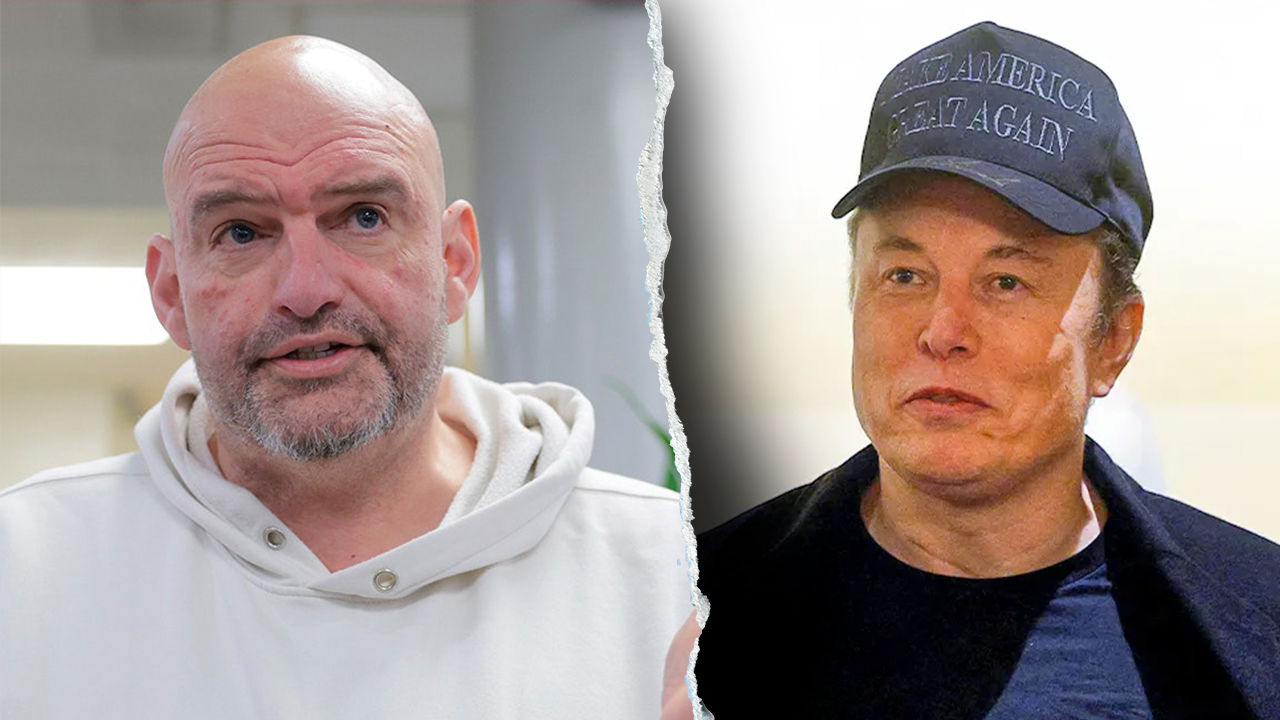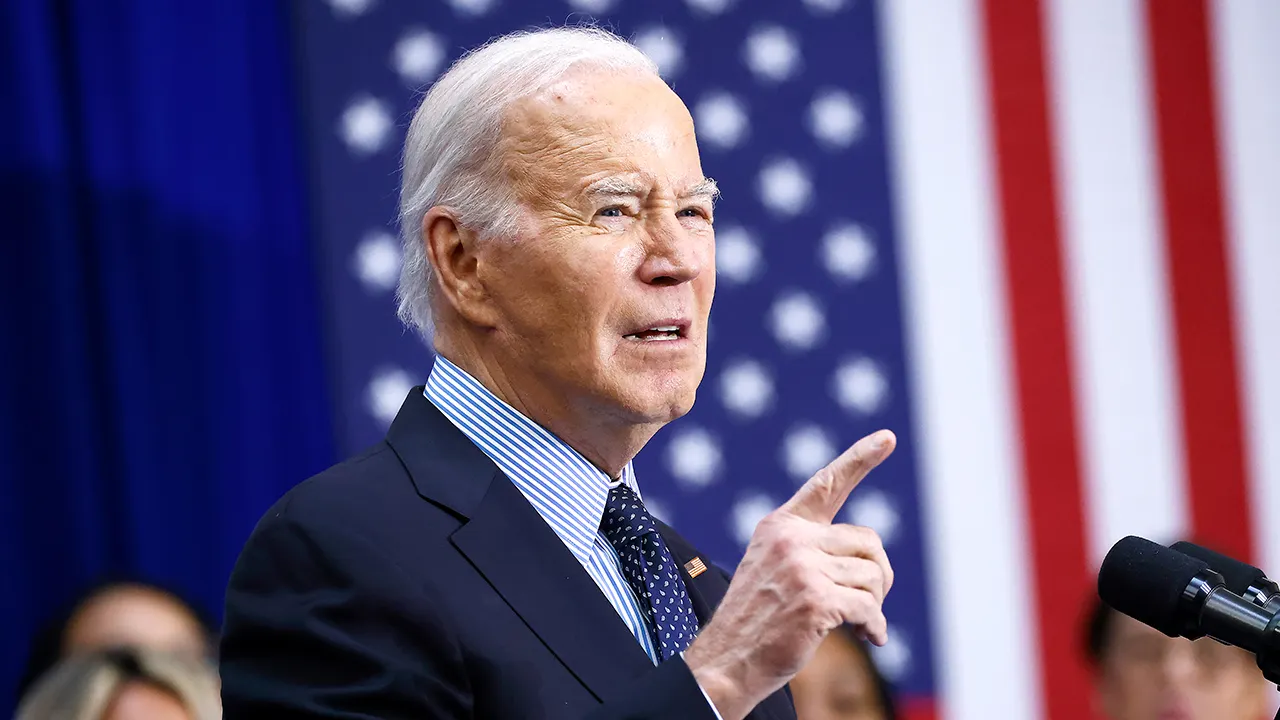Business
Muchos trabajadores inmigrantes se enfrentan a un futuro sombrío sin prestaciones de jubilación. Un proyecto de ley californiano podría ayudar

Ya sea bajo la lluvia, con fuertes vientos o con el sofocante calor del verano, a José Villa se le puede ver por las calles del norte de Los Ángeles, provocando sonrisas entre niños y adultos por igual. Mientras este inmigrante mexicano empuja un carrito lleno de conos de nieve y paletas, el tintineo de las campanitas anuncia que su negocio está abierto a cualquiera que desee un dulce o un alivio inmediato del calor.
“Tengo un trabajo muy dulce porque hace feliz a mucha gente”, dice Villa en uno de sus recientes paseos por Highland Park. “Pero sí, mi futuro económico puede ser muy amargo. Así que por hoy no voy a pensar en ello”, dijo con una sonrisa.
Villa quería jubilarse a los 62 años, pero como inmigrante sin papeles no puede permitirse el lujo de descansar en casa. Los trabajadores inmigrantes en su situación legal no tienen derecho a recibir prestaciones de jubilación del Seguro Social, aunque hayan pagado impuestos utilizando un Número de Identificación Fiscal Individual, o ITIN, que se expide a las personas sin número del Seguro Social con el único fin de declarar impuestos federales.
Con pocas oportunidades de trabajo, Villa lleva siete años vendiendo helados. “No sé qué me depare el destino cuando mi cuerpo se rinda”, dice.
(Raul Roa / Los Angeles Times)
Este hombre, nativo de Culiacán, Sinaloa, llegó a Estados Unidos cuando tenía 47 años. Creció trabajando en el campo, sembrando frijol, cacahuete, maíz y sésamo, hasta que decidió probar suerte al otro lado de la frontera. Con sólo sexto de primaria, Villa pudo instalarse en Los Ángeles y conseguir trabajo como cocinero en un restaurante. Tras 18 años de servicio, fue despedido sin explicación alguna, dijo.
Con escasas oportunidades laborales, Villa lleva siete años vendiendo helados, pero el dinero no le alcanza para alquilar un apartamento ni siquiera una habitación, por lo que vive en un garaje que su jefe, el dueño del carrito, le ha facilitado por tiempo indefinido.
“No sé qué me depare el destino cuando mi cuerpo se rinda”, dice el inmigrante, ajustándose el sombrero para protegerse del sol. “Sólo debo tener fe para que ocurra un milagro y el gobierno se apiade de los viejos como yo”.
Durante la próxima década, este sombrío futuro está la vista de los inmigrantes que viven en California sin seguro de desempleo, prestaciones de jubilación u otra forma de red de seguridad, “en números como en ningún otro estado en la historia moderna”, según un informe del Centro Comunitario y Laboral UC Merced publicado el 23 de marzo.
El informe, titulado “A Golden Age: California’s Aging Immigrant Workforce and Its Implications for Safety Net Policy”, afirma que, en 2019, la fuerza laboral no ciudadana en California era de 2,984,821 trabajadores migrantes, de los cuales aproximadamente 1,253,625 carecían de documentos de trabajo legales.
Entre los trabajadores no ciudadanos, 9,558 tenían entonces 75 años o más, 67,960 tenían entre 65 y 74 años, y 316,539 tenían entre 55 y 64 años. Entre los trabajadores sin documentos de trabajo de 75 años o más, había 4.014 en 2019, mientras que unos 28.543 tenían entre 65 y 74 años y 132.946 entre 55 y 64 años. Estas cifras indican que miles de familias inmigrantes caerán en la pobreza extrema, según analistas y activistas.
Ante la poco probable acción del Congreso para enfrentar la situación, algunos políticos californianos y activistas inmigrantes están impulsando una legislación para aliviar la situación de trabajadores como Villa.
“La idea es proporcionar a estas personas una ayuda monetaria, porque muchos de ellos han trabajado durante décadas y han contribuido durante muchos años a fortalecer la economía de California”, dijo Carrillo. “Es hora de reconocer el arduo trabajo que realizan en los campos agrícolas y en otras industrias de servicios como la agricultura, jardinería, los servicios de construcción y el servicio de restaurantes, entre muchos otros”.
En 2019, según el IRS, se presentaron más de 2,5 millones de declaraciones de impuestos con ITIN, lo que representa casi 6 mil millones de dólares en impuestos. Un estudio de New American Economy, una organización de investigación mostró que los inmigrantes indocumentados contribuyen con un promedio de $ 13 mil millones al Seguro Social y $ 3 mil millones a Medicare por año.
Actualmente, el programa CAPI proporciona 1.100 dólares al mes a los inmigrantes que cumplen los requisitos. Las personas sin documentos legales tendrían beneficios similares, dependiendo de su situación económica actual, dijo Carrillo.
El asambleísta Miguel Santiago, coautor del proyecto de ley, dijo que es imperativo que los políticos apoyen esta ampliación, ya que nadie quiere ver a más personas sin hogar en las calles de California en los próximos años.
“La necesidad no conoce enfermedad, ni vejez”, dijo Santiago. “Estas personas mayores viven en nuestras comunidades, no se van a ir a ninguna parte. Muchos de ellos siguen trabajando, por lo que es crucial atenderlos en el nivel básico para vivir, lo que significa ayuda monetaria para que puedan comer y al menos tener un techo”.
Está previsto que la AB 1536 sea tratada por el comité de apropiaciones del Senado estatal el 14 de agosto.
Para Villa, los ingresos adicionales que recibiría le permitirían al menos alquilar un apartamento de un dormitorio en lugar de vivir en un garaje con sólo un sofá y un televisor.
Mientras Villa vende paletas en el norte de Los Ángeles, al sur Roberto González, de 69 años, lava coches.
González está empapado en sudor mientras limpia los cristales de una camioneta Ford Ranger y luego limpia las llantas.
Este mexicano del estado de Puebla padece diabetes, hipertensión y artritis reumatoide, que a veces le entume las articulaciones de las manos y le dificulta el trabajo. Pero su objetivo es seguir trabajando al menos cinco días a la semana para poder compartir sus escasos ingresos con uno de sus dos hijos.
“Los días de calor son los más duros, pero es mejor aguantar el sol que la lluvia, porque si llueve no tengo trabajo”, dice González, que lleva cinco años limpiando coches. Los dos años que inicialmente pensaba quedarse en Estados Unidos se han alargado a más de 49.
“Uno dice: ‘Un año más y me voy’, pero todos los ahorros se gastan en el alquiler, las facturas y en enviar dinero a la familia”, dijo González. “La verdad es que tengo miedo de ser una carga para la sociedad, y especialmente para mis dos hijos mayores. Sin poder trabajar, dependería de ellos porque no tengo prestaciones de jubilación”.
González cree que si se aprobara la AB 1536 podría contribuir a los pagos de la comida de su hijo y a otros gastos del hogar.
Víctor Narro, director del proyecto y profesor de estudios laborales en el Centro Laboral de la UCLA, dijo que, aunque los inmigrantes indocumentados de edad avanzada necesitan ayuda urgentemente, el fortalecimiento del Seguro Social está destinado al fracaso político, especialmente cualquier plan que lo extienda a los inmigrantes indocumentados.
“El estado se enfrenta a una crisis sin precedentes cuando se trata de su población indocumentada que envejece rápidamente”, dijo Narro. “A pesar de sus esfuerzos, los activistas proinmigrantes no han logrado una reforma migratoria que legalice a estas personas después de una lucha de 30 años. Esto contribuye a que más gente trabaje por debajo de la mesa ganando dinero en efectivo, mientras otros se las arreglan para pagar impuestos que de todas maneras no permiten una jubilación”.

“No pido nada más que algo a cambio de mis contribuciones”, dijo Villa. Los trabajadores indocumentados no tienen derecho a recibir prestaciones del Seguro Social, aunque hayan pagado impuestos.
(Raul Roa / Los Angeles Times)
Aunque Narro cree que el movimiento político es esencial para ayudar a los trabajadores inmigrantes de edad avanzada, reconoce que los proyectos de ley se enfrentan a importantes obstáculos políticos. Además, “el Seguro Social lleva mucho tiempo en un terreno financiero inestable”, porque a medida que envejece la población estadounidense hay menos trabajadores para mantener al creciente número de beneficiarios, que en conjunto viven más años. Algunos analistas calculan que los fondos podrían agotarse en 2034.
“La gente muere sin documentos y sin prestaciones, habiendo dejado su vida en un trabajo”, dijo Angélica Salas, directora ejecutiva de la Coalición por los Derechos Humanos de los Inmigrantes, o CHIRLA, que apoya la AB 1536. “Si no impulsamos este tipo de ley ahora, en los próximos años vamos a ver más ancianos con problemas de salud, incapaces de trabajar”.
“Se trata de una cuestión moral, de dignidad y respeto a las personas mayores”, añadió.
Para trabajadores como Villa y González, el proyecto de ley de California ofrece cierta esperanza.
“Todos vamos a envejecer, y lo único que nos va a preocupar es estar sanos y tener un techo y comida”, dijo Villa. “No pido nada más que algo a cambio de mis contribuciones”.
En opinión de González, “Dios bendice a quien da la mano a quien lo necesita. Espero que los políticos piensen en nosotros y nos echen esa mano que necesitamos”.

Business
Paramount chair Shari Redstone has been diagnosed with thyroid cancer

Paramount Global chairwoman and controlling shareholder Shari Redstone is battling cancer as she tries to steer the media company through a turbulent sales process.
“Shari Redstone was diagnosed with thyroid cancer earlier this spring,” her spokeswoman Molly Morse said late Thursday. “While it has been a challenging period, she is maintaining all professional and philanthropic activities throughout her treatment, which is ongoing.
“She and her family are grateful that her prognosis is excellent,” Morse said.
The news comes nearly 11 months after Redstone agreed to sell Paramount to David Ellison’s Skydance Media in a deal that would end the family’s tenure as major Hollywood moguls.
However, the government’s review of the Skydance sale hit a snag amid President Trump’s $20-billion lawsuit against Paramount subsidiary CBS over edits to an October “60 Minutes” broadcast.
Redstone, 71, told the New York Times that she underwent surgery last month after receiving the diagnosis about two months ago. Surgeons removed her thyroid gland but did not fully eradicate the cancer, which had spread to her vocal cords, the paper said.
She continues to be treated with radiation, the paper reported.
The Redstone family controls 77% of the voting shares of Paramount. Her father, the late Sumner Redstone, built the company into a juggernaut but it has seen its standing slip in recent years. There have been management missteps and pressures brought on by consumers’ shift to streaming. The trend has crimped revenue to companies that own cable channels, including Paramount.
Redstone has wanted to settle the lawsuit Trump filed in October, weeks after “60 Minutes” interviewed then-Vice President Kamala Harris. Trump accused CBS of deceptively editing the interview to make Harris look smarter and improve her election chances, a charge that CBS has denied.
The dispute over the edits has sparked unrest within the company, prompted high-level departures and triggered a Federal Communications Commission examination of alleged news distortion.
The FCC’s review of the Skydance deal has become bogged down. If the agency does not approve the transfer of CBS television station licenses to the Ellison family, the deal could collapse.
The two companies must complete the merger by early October. If not, Paramount will owe a $400-million breakup fee to Skydance. Redstone, through the family’s National Amusements Inc., also owes nearly $400 million to a Chicago banker and tech titan Larry Ellison, who is helping bankroll the buyout of Paramount and National Amusements.
Business
How Hard It Is to Make Trade Deals

President Trump has announced wave after wave of tariffs since taking office in January, part of a sweeping effort that he has argued would secure better trade terms with other countries. “It’s called negotiation,” he recently said.
In April, administration officials vowed to sign trade deals with as many as 90 countries in 90 days. The ambitious target came after Mr. Trump announced, and then rolled back a portion of, steep tariffs that in some cases meant import taxes cost more than the wholesale price of a good itself.
The 90-day goal, however, is a tenth of the time it usually takes to reach a trade deal, according to a New York Times analysis of major agreements with the United States currently in effect, raising questions about how realistic the administration’s target may be. It typically takes 917 days, or roughly two and a half years, for a trade deal to go from initial talks to the president’s desk for signature, the analysis shows.
Roughly 60 days into the current process, Mr. Trump has so far announced only one deal: a pact with Britain, which is not one of America’s biggest trading partners.
He has also suggested that negotiations with China have been rocky. “I like President XI of China, always have, and always will, but he is VERY TOUGH, AND EXTREMELY HARD TO MAKE A DEAL WITH!!!” Mr. Trump wrote on Truth Social on Wednesday. China and the United States agreed last month to temporarily slash tariffs on each other’s imports in a gesture of good will to continue talks.
Part of what the president can accomplish boils down to what you can call a deal.
The pact with Britain is less of a deal than it is a framework for talking about a deal, said Wendy Cutler, the vice president of the Asia Society Policy Institute and a former U.S. trade negotiator. What was officially released by the two nations more closely resembled talking points for “what you were going to negotiate versus the actual commitment,” she said.
During his first term, Mr. Trump secured two major trade agreements, both signed in January 2020. One was the United States-Mexico-Canada Agreement, which was a reworking of the North American free trade treaty from the 1990s that had helped transform the economies of the three nations.
U.S.M.C.A. is an all-encompassing, legally binding agreement that resulted from a lengthy and formal process, according to trade analysts.
Such deals are supposed to cover all aspects of trade between the respective nations and are negotiated under specific guidelines for congressional consultation. Closing the deal involves both negotiation and ratification — modifying or making laws in each partner country. The deals are signed by trade negotiators before the president signs the legislation that puts it into effect for the United States.
Mr. Trump’s other major agreement in his first term was with China, in an echo of the current trade war. The pact, unlike previous deals, came about after Mr. Trump threatened tariffs on certain Chinese imports. This “tariff first, talk later” approach, said Inu Manak, a trade policy fellow at the Council on Foreign Relations, is part of the same playbook the administration is currently using.
The result was a nonbinding agreement between the two countries, known as “Phase One,” that did not require approval from Congress and that could be ended by either party at any time. Still, it took almost one year and nine months to complete. China ultimately fell far short of the commitments it made to purchase American goods under the agreement.
A comparison of the two first-term Trump deals shows the drawn-out and sometimes winding paths each took to completion. Fragile truces (including ones made for 90 days) were formed, only for talks to break down later, all while rounds of tariffs injected uncertainty into the diplomatic relations between countries.
The Times analysis used the date from the start of negotiations to the date when the president signed to determine the length of deal making for each major agreement dating back to 1985 that’s currently in effect. The median time it took to get to the president’s signature was just over 900 days. (A separate analysis published in 2016 by the Peterson Institute for International Economics used the date of signature by country representatives as the completion moment and found that the median deal took more than 570 days.)
With roughly one month before the administration’s self-imposed deadline, Mr. Trump’s ability to forge deals has been thrust into sudden doubt. Last week, a U.S. trade court ruled he had overstepped his authority in imposing the April tariffs.
For now, the tariffs remain in place, following a temporary stay from a federal appeals court. But in arguing its case, the federal government initially said that the ruling could upset negotiations with other nations and undercut the president’s leverage.
In a statement on Wednesday, Kush Desai, a White House spokesman, said that trade negotiators were working to secure “custom-made trade deals at lightning speed that level the playing field for American industries and workers.”
But in other recent public statements, White House officials have significantly pared back their ambitions for the deals.
In April, Scott Bessent, the Treasury secretary, hedged the number of agreements they might reach, suggesting that the United States would talk to somewhere between 50 and 70 countries. Last month he said the United States was negotiating with 17 “very important trading relationships,” not including China.
“I think when the administration first started, they thought they could actually do these binding and enforceable deals within 90 days and then quickly realized that they bit off more than they could chew,” Ms. Cutler said.
The administration told its negotiating partners to submit offers of trade concessions they were willing to make by Wednesday, in an effort to strike trade deals in the coming weeks. The deadline was earlier reported by Reuters.
The current approach to deal making may be strategic, Ms. Manak said. One of the benefits of not doing a comprehensive deal like U.S.M.C.A. is that the administration can declare small “victories” on a much faster timeline, she said.
“It means that trade agreements simply are just not what they used to be,” she added. “And you can’t really guarantee that whatever the U.S. promises is actually going to be upheld in the long run.”
Data and graphics are based on a New York Times analysis of information from the Congressional Research Service, the U.S. Trade Representative, the Organization of American States’ Foreign Trade Information System and public White House communications.
Business
Terranea Resort accused of pregnancy discrimination, retaliation in lawsuit

A former marketing executive at the Terranea Resort sued the luxury establishment on Wednesday, alleging its president had made discriminatory comments towards pregnant women working at the company.
The former marketing exercutive, Chad Bustos, alleges in the lawsuit filed on Wednesday that he was fired in retaliation after he defended several female employees.
Terranea Resort and the company’s president did not respond to a request for comment about allegations in the lawsuit, which was filed in Los Angeles County Superior Court.
Bustos said he had worked at the 560-room oceanfront resort that perches on the Palos Verdes Peninsula since 2023. He had supervised an all-female marketing team, of which three employees were young moms with children under 3, according to the complaint.
The lawsuit describes a meeting in February 2024, where the resort’s president, Ralph Grippo, became “visibly angry” after hearing a woman on the team planned to take maternity leave. Her announcement had come months after another employee had returned from maternity leave.
Grippo, who also is a defendant in the lawsuit, allegedly stood up, pushed his chair back and began questioning the other women in the room. The lawsuit said Grippo pointed at each woman in turn, asking, “Are you pregnant?” After each woman answered, he sat back down and the meeting continued.
After the meeting, Grippo allegedly began “scrutinizing the marketing team and nitpicking their performance,” using the resort’s security cameras to see what time they arrived to work and when they left. He told Bustos to write up the women for what he deemed to be minor infractions, but Bustos refused, according to the complaint.
At another meeting in May 2024, Grippo scolded female employees for not working hard enough, although the team was high-performing and employees worked long hours, the lawsuit said.
Grippo was reported to the human resources department by one of the women, and Bustos confirmed her claims to the department, the lawsuit said. Bustos also confronted Grippo around that time, telling him his comments were inappropriate, according to the complaint.
After that, Grippo refused to speak with Bustos or return his calls, the lawsuit alleged, and in August 2024, Grippo fired Bustos.
Under California law, it is illegal for employers to ask employees about medical conditions, including pregnancy.
And anti-pregnancy comments can be used as evidence of sex discrimination, said Lauren Teukolsky, the attorney representing Bustos.
Bustos, who had worked with Grippo for 11 years at another company prior to joining him at the Terranea Resort, said in an interview that he initially thought Grippo would understand his perspective because of their long-standing relationship.
Bustos said his team was “very talented and hardworking,” and the sacrifices they and others have made to raise children “should be important for everybody.”
Grippo had had a history of making other anti-pregnancy comments, the lawsuit alleged.
When a woman asked Grippo for a promotion, he allegedly questioned her about how she planned to balance the promotion while raising a child. He asked another woman with two children who applied for a marketing job if her work schedule was going to be a problem since she was a mom, the lawsuit said.
Grippo wrote up another pregnant employee because she came in 15 minutes late as a result of morning sickness, and questioned another pregnant employee why she had so many doctor’s appointments, the lawsuit said.
In 2017, former dishwasher and chef assistant Sandra Pezqueda sued the resort and a staffing agency after she allegedly experienced repeated sexual harassment and assault by her supervisor, who then retaliated against her by changing her work schedule after she rejected his advances.
Pezqueda received a $250,000 settlement with the company denying any wrongdoing, news reports said.
Then-president Terri A. Haack said in a statement to Time that the company has “a zero-tolerance policy toward harassment.”
The Terranea resort is jointly owned by JC Resorts, a company with a portfolio of resorts and golf courses based in La Jolla, and Lowe Enterprises, real estate investment firm based in Los Angeles. The companies did not immediately respond to a request for comment.
-

 Politics1 week ago
Politics1 week agoTrump admin asking federal agencies to cancel remaining Harvard contracts
-

 Culture1 week ago
Culture1 week agoCan You Match These Canadian Novels to Their Locations?
-

 Technology1 week ago
Technology1 week agoThe Browser Company explains why it stopped developing Arc
-

 News1 week ago
News1 week agoHarvard's president speaks out against Trump. And, an analysis of DEI job losses
-

 News1 week ago
News1 week agoRead the Trump Administration Letter About Harvard Contracts
-

 News7 days ago
News7 days agoVideo: Faizan Zaki Wins Spelling Bee
-

 World1 week ago
World1 week agoDrone war, ground offensive continue despite new Russia-Ukraine peace push
-

 Politics5 days ago
Politics5 days agoMichelle Obama facing backlash over claim about women's reproductive health














